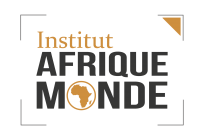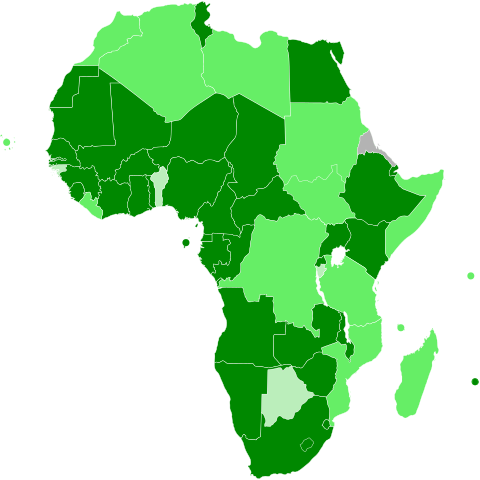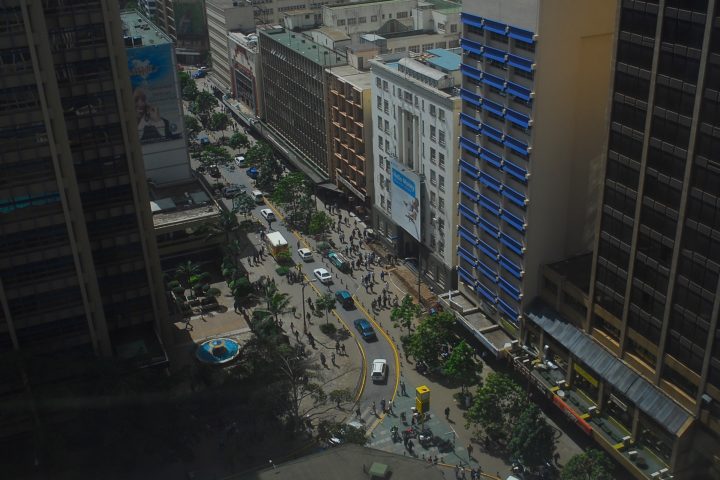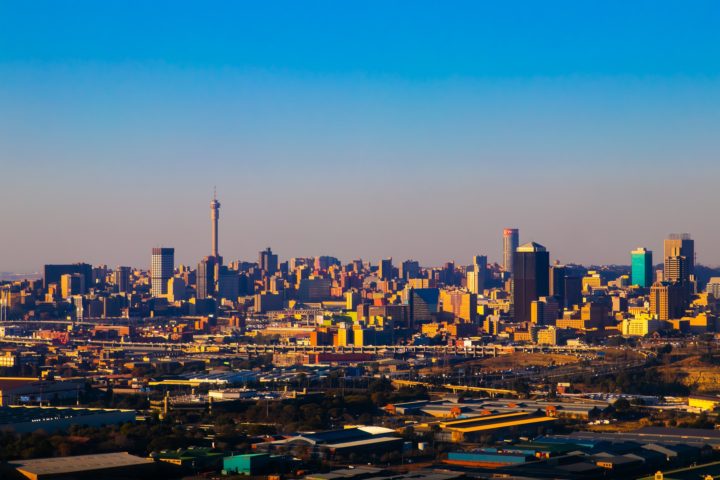Equality, training, integrity, discipline and autonomy, the ideal values of progressive African governance.
By 2040, i.e. in about 20 years’ time, the African population is expected to exceed two billion inhabitants according to the latest demographic forecasts of the United Nations[1].
Corruption, lifetime presidency, military fragility, regional dissonances… the governance of African states, particularly Sub-Saharan ones, is often criticized for its many – and persistent – shortcomings.
While progress in this area is still (too) rare, it is still possible and accessible. The totally post-colonial new generation that is now emerging on the continent can embody a real change, both moral and structural, if certain guidelines are followed. In view of the challenges facing the continent and those to come, a clean-up of the regional political and geopolitical landscape is essential.
Without becoming utopian or the wish for unrealistic reforms, actions within reach must be taken, above all to mobilize public opinion and raise awareness among the new and future elites.
Preparing the youth of tomorrow
The African population is growing in number, but above all now includes a majority of young individuals, through a real demographic explosion in terms of the next generation.
If this element is not to be a constraint[2] but, on the contrary, a force for the continent and its development, it is essential that this youth be trained, and that it find an active place within the continental construction site and the world strategic chessboard.
In this perspective, it is necessary to begin by countering the brain drain, a phenomenon that already occurred before African independence and has persisted since then, due to the lack of real infrastructure sufficient for the training of the intellectual and professional elites, and of attractive opportunities on the continent itself. This response involves strengthening primary, secondary and higher education programmes, renovating existing universities and creating new campuses.
In view of the disparities in the development of higher education infrastructure on the continent, regional university exchange initiatives are to be welcomed, citing, for example, Moroccan, Zimbabwean or South African institutions that host students from other Sub-Saharan African countries to train students in medicine, computer science, engineering and all areas where Africa is still severely lacking in human resources.
Mauritius’ African Leadership College is a model for such an institution, bringing together young entrepreneurs from all over the African continent to train the next generation of “ethical and entrepreneurial leaders”[3]. The development of a sufficient number of such training institutions and their accessibility will enable the continent to strengthen its own leadership in a sustainable manner.
It is also essential that African women have the same access to education and career opportunities as men throughout the continent.
The Africa of tomorrow will be young and will, according to demographic forecasts, be predominantly female. African leadership must be both male and female if Africa is to be prophylactic and avoid falling into the gender inequalities that the Western model has experienced – and still knows -. To achieve this, it is important to get rid of the obstacles that still prevent women from being equal to men.
Thanks to the United Nations programmes for women’s rights[4], more and more young girls have been able to grow up on the African continent over the past twenty years by receiving sufficient education not to be exploited and to be autonomous. Many NGO campaigns have taken place and are still ongoing, moreover, to put an end to scourges resulting from outdated traditions such as FGC in West Africa and sexual cleansing rites in East and Southern Africa[5].
All these patriarchal traditions bring the female condition back under the control of men in general and the figure of the head of the family in particular to create an “asymmetrical sexual order”[6] that Africans are not condemned to follow.
Bringing today’s elite to order
Beyond the development of quality higher education throughout the continent, it is also essential to bring together all the intellectual potential, especially those individuals who have migrated around the world, attracted by the training and professional opportunities offered by the Middle East, North America and Europe. To achieve this, priority must be given to ensuring the stability of public institutions and public order in order to provide a context and climate conducive to financial and human investment, and in a second phase to direct investment by local or regional nationals at most.
Such investments, particularly in sectors where each national economy has a comparative advantage, would enable African States to benefit directly and without intermediaries from the exploitation of resources that abound in the continent and its soils, but whose populations do not perceive the fruits.
Similarly, scientific research, often joint higher education, since it is the incubator if not the catalyst, should be developed and encouraged through the creation of poles of excellence and research centres in advanced technologies in different parts of the continent, on a joint initiative by several States in order to pool the costs and share the economic, intellectual and material benefits. Again, a stable societal context is essential for the development of such structures.
This issue of the climate favourable to financial and human investment, to the improvement of higher education and scientific research opens up a broader and more complex issue: that of governmental stability and the capacity of public institutions to ensure both their effectiveness and their sustainability within each African State.
This is where the problem lies and a perverse cycle emerges; there does not currently seem to be enough social[7] and human capital trained in the political and administrative bodies of many African countries to make the development process fully effective. It is therefore difficult to bring back an often disillusioned diaspora, resource management and project implementation is slow.
Those who hold the keys to power, as well as the means of production and financial manna, have more interests to maneuver to preserve their place and benefits than to work for the general interest of the country and the population.
They often act according to social logics specific to the continent: charged with a strong dependence on their family, village and ethnic group, political decision-makers and economic leaders often surround themselves with their relatives. These relatives benefit from the level of power and financial prosperity of a head of state or large company, integrating into a clan-type framework and sometimes sitting in a position of high responsibility without always having the appropriate skills and legitimacy.
There is a glaring lack of discipline in the institutions of the continent’s states, with a significant proportion of elected officials and senior civil servants falling into financial mismanagement. Many examples can easily be found throughout the recent history of many Sub-Saharan nations, such as Gabon of the Bongo or the DRC of the Kabila “clan”[8].
The renewal of elites is a crucial point and linked to the problems mentioned above; of 55 States, only 23 are considered as true democracies, while 23 others are “stable dictatorships”[9], the rest being either monarchies, failed States, at war or in a state of transition.
Real and effective societal development cannot be envisaged on a continent where nearly half of the countries are in the hands of a one-party dictatorial regime, repeating a state system where the leader has been in power for several decades and retains it until his death. However, it is urgent for the whole continent to engage in a rapid and profound process of structural change to respond to the many challenges facing it[10].
Giving Africa a voice in international negotiations
To offer Africans a central position in the global strategic arena, the continent’s leaders must deepen the role and influence of their states within the major international organizations and at the heart of decision-making.
African leadership can be sustainably influential on the condition that major international policy decisions (in the economic, environmental, medical or military fields) are taken with the real assistance of African States and no longer only their simple consent as is still too often the case.
To do this, we must support initiatives calling for African representation in the United Nations Security Council, through an African State with a permanent seat there. The unity of African States is already felt within international organizations, particularly through the “Africa Group”, which often works together by making common choices of support, neutrality or opposition to a resolution within the various UN assemblies, commissions and agencies.
However, with a population that could reach 2 billion by 2040, it is neither normal nor acceptable that Africa should not be fully and permanently represented in the organization with such important decisions in terms of global geopolitics as the Security Council.
Internally, since Morocco’s return in January 2017, the African Union has now brought together all sovereign African States and must now implement all the ambitious projects that have emerged in recent years and that aim to create an independent Africa beyond its borders but interconnected through its States.
Efforts at harmonization and collective participation need to be confirmed at the social, economic, legal and political levels. While joint decisions have already been taken in the field of foreign policy, economic and social cooperation has yet to be developed. Encouraging symbolic measures are moving in this direction, particularly towards the creation of an African passport[11], which must be effective by 2020.
While there is at least a stated desire to achieve real major progress in the continent’s collective policy, African heads of state still need to reach agreement, leaving room for consensus and large-scale programmes.
Moreover, in its current state, the collective continental institution still lacks efficiency, financial resources excluding foreign donors, and projects implemented[12].
Koffi Annan, a Ghanaian who has worked at the highest levels of international bodies, said so himself in a speech to the General Assembly of the United Nations on 23 January 2001, a few days after the most devastating attacks the world has ever seen; “the only path that still offers any hope for a better future for all humanity is that of cooperation and partnership“. As cooperation on a continental scale stands at present, before changing Africa, the Union must therefore already reform itself.
Ensure resilience to political crises through regional military autonomy
With regard to regional organizations, actions and programmes for the defence of stability and security, it is important for Africa to strengthen its capacities with a view to acting collectively on the military dimension.
Multinational armed forces, such as those set up by ECOWAS with battalions from many Community countries to respond to several crises, represent a solution that has the legitimacy to intervene and respects the sovereignty of the State to which the intervention territory belongs.
The establishment and use of these regional forces should therefore be encouraged, but above all developed. Indeed, the first missions of these, to take up the case of the ECOWAS multinational forces, have met with mixed success, as shown by the operation in northern Mali in 2012 (MISMA) under the leadership of the then President of the Community Alassane Ouattara, where 3300 soldiers had been slow to be effective, “ready to be deployed”[13] in November 2012 but sent to the field only from February 2013 due to a lack of logistics and especially financial means[14] when the situation was urgent.
ECOWAS has carried out other operations since Mali in 2013, and one of the most recent was the sending of a multinational force of 7,000 soldiers from various West African states under Senegalese command to The Gambia to maintain peace in the face of the post-election crisis and the refusal of outgoing President Yaya Jammeh to leave power.
Due to its speed of implementation and scope[15], there has been a clear increase in the power and effectiveness of this collective regional force, whose presence in Gambia has now been extended until June 2018.
African states are now in a position to defuse a crisis in the territory of one of them, without the direct intervention of an extra-continental entity, an encouraging observation for Africa’s autonomy and credibility at the international level.
In conclusion
The 55 states of the continent have many projects to launch so that Africa can be responsible for its own destiny. Its much-awaited and expected economic development requires a change in mentalities, massive investments not only in financial terms but also and above all in human terms.
The training of Africa’s many young people is essential to ensure that rational and responsible initiatives are taken by the various actors and decision-makers in the various fields affecting economic and social progress and the improvement of the standard of living of Africans.
Tomorrow’s African leaders are expected to trigger ambitious and action-oriented public policies, to put the general interest of the nation and its citizens ahead of their personal interests, and to ensure that the power they have is not a means to enrich themselves at the expense of their peers.
With a significant number of the world’s worst students in terms of corruption and misappropriation of public funds, good governance must de facto be seen as a sine qua non for every African to lead a decent standard of living when, paradoxically to the efforts that are announced and promised, it seems to have deteriorated over the past decade or so[16].
At the regional and continental level, African countries can and must rely on increased solidarity which, just as it has enabled European States to unite in the prosperity of the 1950s until today, pools the efforts of Africans by promoting and facilitating trade, and considerably strengthening the means of combating the various types of armed threats.
Nicolas KLINGELSCHMITT
[1] United Nations, Department of Economic and Social Affairs, Population Division (2017). World Population Prospects: The 2017 Revision, custom data acquired via website.
[2] LERIDON Henri, “Population projections for Africa confuse analysts. With fertility still high, the continent is not following any known pattern of transition. The exceptional increase in its population could negate the expected beneficial effects of the good growth rates recorded.” Article published in Le Monde Diplomatique, November 2015
[3] SWANIKER Fred, Ghanaian entrepreneur trained at the African Leadership College, in an interview with Le Monde newspaper on August 12, 2016, Article by GWET Yann.
[4] UN Women
[5] A tradition still in practice, particularly in rural Malawi, of giving young girls a “rite of passage” into adulthood through forced sexual intercourse and “training” to give pleasure to men, a tradition for which families pay for their daughters to participate. Read on this subject the report of the newspaper Le Monde of July 2017.
[6] This expression is used by DIANGITUKWA Fweley, PhD in economic and social sciences from the University of Geneva, in his article “African Women and Leadership: Ending Male Domination” published in Research Note 13 of the Thinking Africa Institute, November 2014.
[7] “The question of social capital involves three concepts: human capital, institutions and values. Here again, Africa is poorly placed in international rankings (Koulibaly 2008). The new generation of leaders will no longer be able to ignore this situation.” O. IGUE John, “A New Generation of Leaders in Africa: What are the Challenges?” p.119-138
[8] “According to a Bloomberg agency survey, the Congolese president’s brother has invested in a myriad of companies since Joseph Kabila came to power.” Article published by the newspaper Le Monde on July 24, 2017.
[9] MARZIN Régis, study of March 30, 2016 updated in April 2017, “Democracy in Africa, Year of the electoral coups d’état in Africa”
[10] “Africa needs a new type of leader to initiate its structural transformation, including addressing the challenges of food security, demography, sustainable development and social services such as education, health and access to water and sanitation.” Annual Meetings of the African Development Bank, Marrakech Seminar, May 28, 2017
[11] At the 27th African Union Summit in Kigali, the project for a common passport for all citizens of an African Union member state was implemented. “Isn’t the adoption of the same passport for the entire continent a way to get rid of the borders inherited from the colonial era? Is this not a strong way of reconnecting with the ideal of the founding fathers of the Organization of African Unity, not the least of which was Kwame Nkrumah? “Africa must unite,” he said. The implementation of this passport is a promising response at a time when a new Africa seems to be emerging” ROYER Marie, extract from article, Le Point Afrique published on July 27, 2016.
[12] “We are at a turning point, the challenges we face require us to adapt our tool in a changing world“, said Moussa Faki Mahamat, President of the African Union Commission, at the May 7, 2017 meeting in Kigali of a majority of African Union heads of state.
[13] “An ECOWAS summit extended to other African countries approved on Sunday [11 November 2013] the sending of 3,300 soldiers to help the Malian army to reconquer northern Mali,” according to Le Monde newspaper on November 13, 2012.
[14] “This international force is not yet funded, and this may be one of the reasons for the inertia of the ECOWAS countries, for a force whose idea comes from these same African leaders. The intentions repeatedly stated at the conferences of West African heads of state have never been implemented. Trained and equipped to ensure the security of national borders, “our armies do not have the logistics and capacity to project themselves in an emergency beyond 1,000 km”, explains a West African minister, excerpt from Radio France Internationale of January 19, 2013.
[15] http://www.rfi.fr/afrique/20170122-gambie-apres-exil-jammeh-place-securisation
[16] “Accountability shows, on average, some negative trends over the decade in the state of corruption on the continent. The decline of the continental average score for the indicator Corruption & Bureaucracy is especially concerning. This indicator, which is provided by the World Bank, assesses the intrusiveness of bureaucracy and the amount of red tape likely to be encountered, as well as the likelihood of encountering corrupt public officials and other groups. The African average score for this indicator is only 36.6 and in 2015 24 countries have arrived at their worst ever score. This is almost half of the continent” VUYLSTEKE Yannick, Article commenting on the 2016 report on African governance of the Mo Ibrahim Foundation, published on December 9, 2016.





Im curious if you ever have problems with what people post? Honestly the internet used to be like a different place, although it seems to be changing for the better. What do you think? Have you considered promoting your blog? add it to SEO Directory right now 🙂